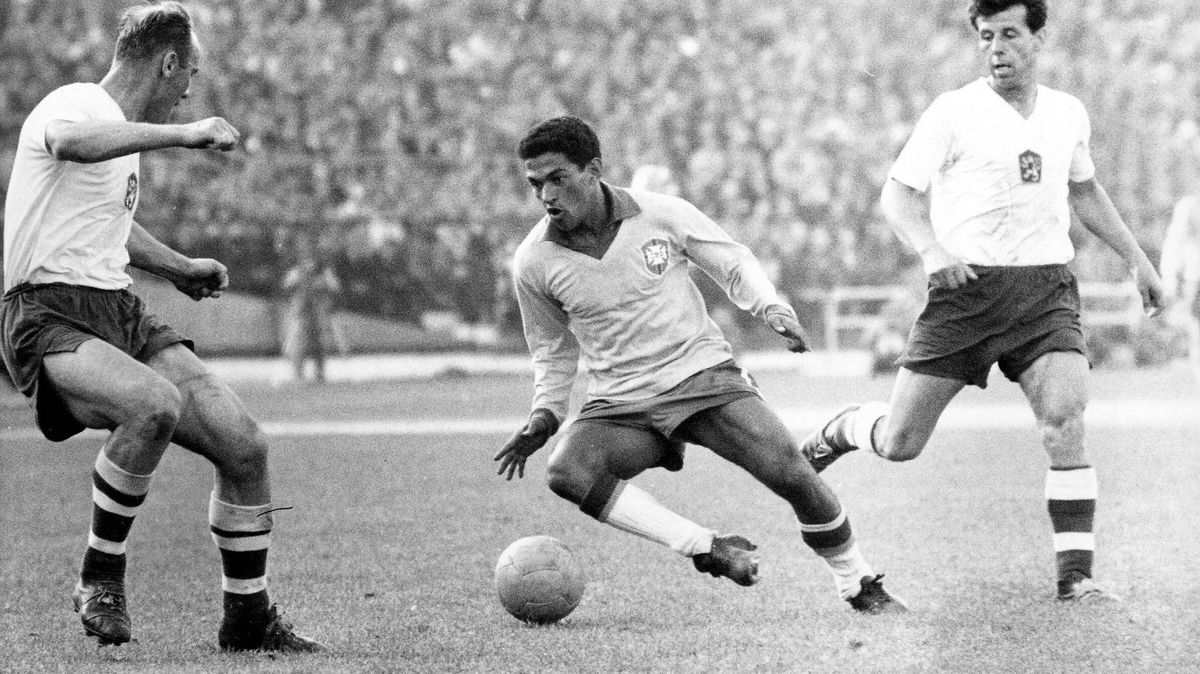You can also listen to the article in audio version.
It might not have been wise for FIFA to assign world championship hosts to the South American nation of Chile, which was not in a real economic situation, at the Lisbon Congress in 1956. The only contender, Argentina (Federal Republic of Germany and Spain withdrew from the race), was defeated. by the president of the Chilean union with the slogan: Porque nada tenemos, lo haremos todo… (Because we have nothing, we will do Everything).
He kept his word, the situation exacerbated by the earthquake in Valdivia in May 1960, with over 50,000 victims and two million disabled, which forced the organizing committee to completely adjust the calendar. Talca, Concepción, Talcahuano and Valdivia were badly damaged, Antofagasta and Valparaíso refused to host any matches.
The championship took place in very modest conditions.
Socialist humility
Some participants didn’t really mind it, for example the Czechoslovak team who won the second silver medal in history. Ward coach Rudolf Vytlacil, accustomed to socialist moderation – amateurs with civil work – don’t complain that they live in a military hostel in Zelená rokli, where there are iron beds and no hot water. “It was simple conditions,” recalls one of the last living witnesses, Josef Jelínek.
Stories from the history of the World Cup
Politics doesn’t belong in football, says the ancient rule. It was really just wishful thinking. Seznam Zprávy presents a series from the history of all world football championships from 1930 to the present day.
Before the final, when the team moved from its base near Viña del Mar to the capital, he slept in the room with the coach. There are no more rooms available…
However, the pampered Italian star couldn’t get over it. Disputes arose that far exceeded the designated area of a football field.
Two articles of slander
Before the start, two Italian correspondents Antonio Ghirelli from Corriere della Sera and Corrado Pizzinelli from il Resto del Carlino – La Nazione wrote very harsh words to the organisers. The article appeared in the Bologna newspaper il Resto del Carlino and was entitled: Santiago, the end of the world – the endless sadness of the Chilean capital.
It has been described as a pathetic symbol of an underdeveloped country, plagued by all manner of vices: malnutrition, prostitution, illiteracy, alcoholism, poverty… And entire districts operating open prostitution.
Another of Pizzinelli’s observations, published in Florence at La Nazione, includes a passage which reads: Chile must be put on a par with many countries in Asia and Africa in terms of underdevelopment. The inhabitants of this continent are not progressing, they are in decline.
Local press reaction
The articles caused incredible outrage. The newspaper Última Hora called for the expulsion of the two Italian reporters, and an Argentinian journalist, mistaken for an Italian, was beaten up in a nightclub.
Another reason for the dispute is the use of naturalized Italians from South American countries. Argentinian natives Omar Sívori and Humberto Maschio presented themselves in the jersey of the Azzurri squad in Chile, which only heightened the traditional rivalry between Latin American football teams.
In addition, he was reminded which country was one of the culprits in the world war, and that had torn everyone’s spirits up. Even the editorial of the Revista Estadio magazine offered no certainty, writing: We too have seen poverty in southern Italy, but we prefer to talk about wonders like Venice and Florence.
Disgraceful match
After such a media firefight, the back-to-back match in base group B couldn’t go well. In almost no play, players kick each other and brutally attack each other. The weak British referee Kenneth Aston, who probably had no idea what it was about, only whistled alternately to either side.
To the delight of 66,000 fans, he brought out two Italians, while according to attendees, he could have sent at least two domestic players to the booth. Chile won 2-0, the hated “macaroni” came home.
The two finalists – the defending champions Brazil and the Czechoslovak team – received more sympathy. They had already met in the base group, and Josef Masopust, the leader of the European team, did not attack the injured King Pelé so he could play calmly. Pelé refused the gesture, sending the ball into the car.
The man’s behavior proves that even at the top level of football, players can respect one another.
1962 World Cup – Chile
Participants (16): Chile, Italy, Federal Republic of Germany, Switzerland, Czechoslovakia, Hungary, Brazil, United Kingdom, Uruguay, Mexico, Yugoslavia, Colombia, Spain, USSR, Argentina, Bulgaria
Semi-finals: Czechoslovakia–Yugoslavia 3:1, Brazil–Chile 4:2
For 3rd place: Yugoslavia–Chile 1:0 (0:0)
Final: Brazil–Czechoslovakia 3:1 (1:1)
Photo: ČTK / imago sportfotodienst

“Certified bacon geek. Evil social media fanatic. Music practitioner. Communicator.”







